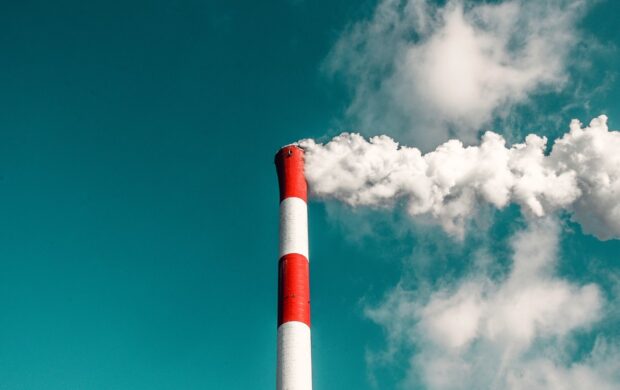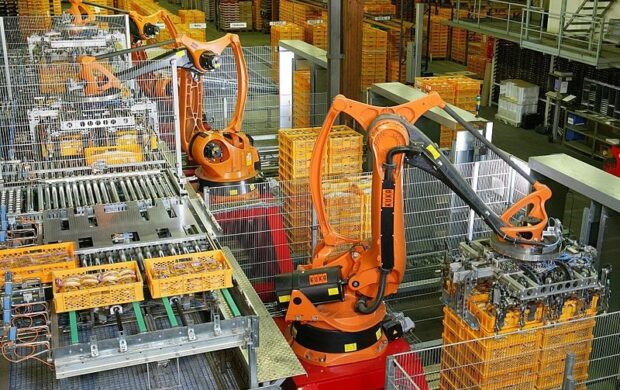As Forum for the Future launches its latest Future of Sustainability report, Chief Executive Dr Sally Uren, reflects on the value ‘futures thinking’ brings to corporate sustainability. Based on how businesses are responding to today’s pressures, she also explores four possible futures emerging today and five key shifts leaders and changemakers must make to stay focused on a transformation agenda.
Forum for the Future has today published its latest Future of Sustainability report, Courage to Transform — highlighting four possible future trajectories and calling for five shifts in how businesses operate if they are to manage the systemic risks associated with an increasingly disrupted climate.
The report recognises the extremely challenging operating context businesses face right now — from inflation and price volatility to rapidly changing reporting and disclosure standards and an increasingly politicised ESG agenda — all underpinned by growing geopolitical tension.
Faced with these headwinds, it can be difficult to stay focused on a long-term transformation agenda. The Future of Sustainability presents a new analysis of how many businesses are responding (or not) to today’s ‘polycrisis’ (defined by the World Economic Forum as a cluster of related global risks with compounding effects).
It’s the product of a ‘futures-led’ inquiry through which we’ve asked two questions:
- Why does inertia persist in the light of escalating environmental and social challenges?
- And, as climate change impacts become ever-present in people’s daily lives, will this open a new opportunity for change?
The value of futures thinking to corporate sustainability
For decades, Forum has used applied futures to help our partners create concrete, practical solutions to the challenges they face. Futures analyses reveal the complex interplay of dynamic trends around us, and yet when rooted in research, allows us to genuinely explore the potential consequences of our interventions. It allows us to get imaginative, which is key when facing inertia — after all, creating a better future starts with imagining what that could look like. And it allows us to unlock ambition and innovation.
Futures analyses reveal the complex interplay of dynamic trends around us, and yet when rooted in research, allows us to genuinely explore the potential consequences of our interventions.
Through desktop analysis, drawing on insights from Forum’s Futures Centre and interviews with business leaders, activists, and entrepreneurs, this year’s Future of Sustainability highlights four future trajectories, or future possible pathways, emerging, today. Each trajectory is underpinned by a particular mindset or approach, and each is a necessarily simplified scenario of what could happen based on the action – and inaction – we’re seeing right now. They are:
- Profit Supreme: The mindset here is ‘resist to, or opt out of, change’, driving a focus on maximising shareholder value and profits above all else
- Shallow Gestures: Based on the mindset ‘attempt what we can’, Shallow Gestures sees actions being taken but in ways that will ultimately fall short. Incremental measures prevail and we fail to deliver change at scale and pace
- Tech Optimism: It’s here people view technology as a solution to all problems, but an over-reliance on it as a ‘silver bullet’ compromises, among other things, the social cohesion needed to tackle deep-rooted social and environmental issues
- Courage to Transform: It’s here businesses adopt a truly transformative mindset, fundamentally resetting and asking existential questions about why they exist and how they operate
Four very different yet plausible futures, all playing out right now. The question is – what should we do next? How best to secure the future we want?
This report is a bid to enable leaders to stay focused on long-term transformation, anticipate what’s coming, and respond in smarter ways to the volatility we know lies ahead. Produced with support from Bupa, People’s Postcode Lottery Green Trust, Aldi Süd, The Crown Estate, and Henkel, the report encourages you to explore the various futures we could face, and from that, clarify the role your business could play in creating them.
Putting ourselves on the Courage to Transform trajectory with five key shifts
Forum believes it is only the fourth trajectory, Courage to Transform, that has the potential to create change at the scale and pace needed. Putting – and keeping – ourselves on this pathway will mean businesses making five key shifts:
- From a risk prevention mindset to a transformative one, which involves seeing opportunity, not risk, in change, while investing in both climate adaptation and mitigation measures
- From addressing the symptoms of our social and environmental crises to tackling their root causes. This necessitates moving beyond incremental ‘solutions’ (that are likely to fail) to recognise the underlying causes of challenges and the potential unintended consequences of your interventions
- From passively responding to their operating context to actively shaping it. From influencing policy to better engaging stakeholders and customers, businesses must increase their agency to drive change
- From slow centralised decision-making to more agile distributed governance models. Instead of consolidating power, businesses must distribute responsibilities and value creation across multiple levels and stakeholder groups
- From failing to acknowledge the influence of individual, organisational, and contextual bias to identifying and removing this bias in risk assessment. Businesses making this shift will see more equitable and balanced decision-making longer-term.
We know making these shifts will not be easy. For some businesses, even keeping the lights on is understandably proving increasingly difficult. But time to avert the worst of our social and environmental crises is rapidly running out and there is no business case for anything that perpetuates the status quo.
Businesses striving for transformation can get ahead of the curve and in doing so, realise a competitive edge. Making the above shifts will enable you to better manage the systemic risks coming your way, but it will take courage.
We know making these shifts will not be easy. For some businesses, even keeping the lights on is understandably proving increasingly difficult. But time to avert the worst of our social and environmental crises is rapidly running out and there is no business case for anything that perpetuates the status quo.
Further reading:
• The Future of Sustainability: Courage to Transform press release
• The Business Transformation Compass report
• Transforming the purpose of business
• The Futures Centre
Explore the future with us
There is no data about the future and prediction is an impossible game. But we can shape the future, and the best way to start is by imagining the future we want.
For years, Forum has used futures thinking to help organisations grapple with uncertainty and change – and by doing so, understand where to focus to have impact.
Find out more about using applied futures to transform your organisation.












Join discussion